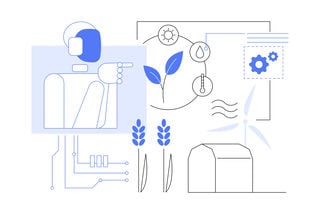Currently, AI is not the main answer for all sustainability challenges
AI and Sustainable Hospitality: Boon or Bane?
Sustainability in Hospitality — Viewpoint by Willy Legrand
Artificial Intelligence (AI) is undoubtedly a powerful tool when paired with the right resources. In recent years, AI has significantly enhanced data collection, analysis, pattern recognition, logistics optimization, and operational efficiency across various industries.
Regarding the hospitality industry, when integrated and interconnected with traditional technologies, leveraging AI can improve efficiency, sustainability, and overall resource optimization. For instance, leveraging AI can support sustainability managers (Question 1) in analyzing energy consumption patterns of HVAC systems, predicting maintenance and lifespan of equipment, analyzing water usage, personalizing guest services based on sustainable practices (for example offering digital check-in/out or adapting lighting levels in rooms), or monitoring waste generation and recycling rates, in particular for food waste.
On a global scale, AI enhances our understanding of complex sustainability challenges by revealing solutions that once seemed unattainable. For example, a recent study confirmed that AI could help achieve 134 targets across all Sustainable Development Goals (SDGs). However, it's important to note that AI currently relies on energy-intensive data centers, making it unsustainable in its current form. Despite this, AI's potential to transform human activities and processes remains immense, promising significant advancements in the future.
Currently, AI is not the main answer for all sustainability challenges (Question 1). Even though AI can significantly contribute to sustainability efforts, to maximize its effectiveness it must be integrated with other traditional technologies and human overview (Question 2). This starts with understanding what AI is, how to use it, and its risks.
Firstly, as explained in the article, there is still confusion between traditional (or non-AI) technology solutions and AI driven solutions. At Kerten Hospitality for example, we have ensured our team members have been trained in better understanding of AI and its uses, as well as the risks and best practices related to it.
Another key element of using AI to its best potential is improving the overall quality and quantity of data collected, as AI is highly dependent on the data it learns from. Effective use of AI in the hospitality industry requires careful data collection, planning, continuous monitoring, and adaptation based on human insights and strategic priorities.
Lastly, it is important to remember that AI is a tool, and therefore is missing human characteristics, such as ethics, empathy, and human creativity. Ethics is at the core of sustainability, as such, human oversight is crucial to ensuring AI applications align with broader sustainability goals and ethical standards. In the same way we adapt to technological changes, AI can be adapted to benefit society in a deeper, long-sighted way.
Legislations such as the European AI Act (Question 4) is essential for regulating AI use in the hospitality industry, enhancing data privacy and security while ensuring ethical and transparent practices. By banning or regulating high-risk AI applications, such as cognitive behavioral manipulation and social scoring, the Act balances innovation with the protection of fundamental rights. Though hospitality businesses will need to adapt to the Act's documentation and protocols, it provides a clear framework for safely and thoughtfully exploring AI innovations.

 by
by 

